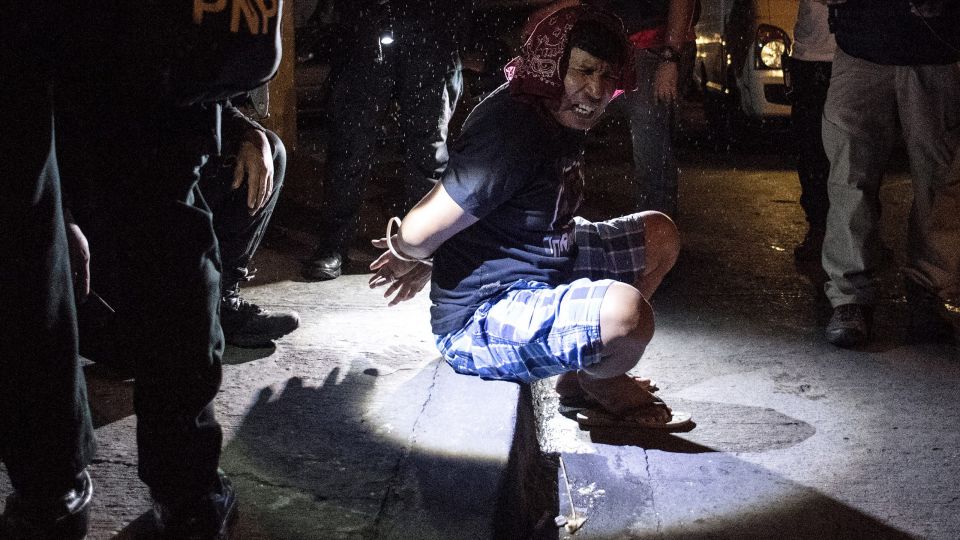March 16, 2018
Philippines President Rodrigo Duterte has pulled his country out of the International Criminal Court with his government accusing the ICC of politicizing local affairs.
President Rodrigo Duterte on Wednesday said he would withdraw the Philippines’ ratification of the Rome Statute, the treaty that established the International Criminal Court (ICC), due to “baseless” accusations against him by UN officials and violations of due process by the ICC.
Duterte’s announcement comes after ICC Prosecutor Fatou Bensouda said she would look into complaints that Duterte’s government is guilty of crimes against humanity in connection with the continuing war on drugs.
In a statement, Mr. Duterte declared “that the Philippines is withdrawing its ratification of the Rome Statute effective immediately.”
“The accusations of these United Nations officials have the effect of painting me guilty before the eyes of the world. There appears to be a concerted effort on those aforesaid United Nations officials to paint me as a ruthless and heartless violator of human rights,” Duterte was quoted as saying by the Philippines Daily Inquirer.
Duterte called the decision by the prosecutor to consider the rights abuse ‘”baseless, unprecedented and outrageous.”
Grandstanding
Duterte’s spokesman Harry Roque said that the decision by the Philippines to withdraw was a big blow to the court. According to Roque, the Philippines was an active member of the ICC and with their withdrawal, other countries might follow suit and quit the body.
“Wrong political move, madam prosecutor, and I am addressing you wherever you are. You just gave the country the confirmation on why they should not be a member of the ICC, because you have shown that you are exercising power without accountability,” Roque said in a press briefing.
“You are to blame if the ICC will become part of history, you are to blame if ICC becomes part of dust bin of history,” he added.
Roque stressed that the ICC can only exercise jurisdiction when local courts are incapable to do their jobs, a situation that did not apply in the case of the Philippines.
“You don’t have to be a rocket scientist to know that the case is politicized when a politician has filed it. It should have been thrown to the wastebasket,” he added.
Criticisms from home and abroad
The decision by Manila was met with derision from both the opposition party and foreign and local rights groups.
Manila-based rights group Center for International Law said that Duterte’s decision gives the impression that the police and other state agents evade accountability for serious human rights violations.
“President Duterte’s decision to withdraw from the International Criminal Court gives the false impression that government agents, especially our police force, can continue to perpetuate a culture of impunity and that that they can evade international accountability for crimes against humanity,” CenterLaw President Joel Butuyan said in a statement.
“CenterLaw shares our people’s fear that this attempt to withdraw from the ICC will plunge the country deeper into the quagmire of impunity – one that has already claimed thousands of lives,” he added.
Vice President Leni Robredo, of the opposition Liberal Party, called the decision “dangerous.”
“Being a signatory in the ICC, that’s our safety net when our officials just neglect cases of abuse in the country, we have a venue where we can go to,” she said. “This is dangerous for the future generation because what if the current in position is abusive? We have nothing to go to.”
International rights group Human Rights Watch also condemned the decision to withdraw from the ICC but said the withdrawal was “no surprise.”
“Duterte has long shown disdain for the rule of law. Last August, Duterte vowed to pardon and promote – rather than punish – any police officer who carried out an unlawful killing. His announcement to pull out of the ICC, which is designed to prosecute those most responsible for grave crimes, is a barefaced attempt to shield him and high-ranking officials from possible ICC prosecution,” the group said in a statement.
A bloody drug war
Since taking office in June of 2016, Duterte’s government has waged a bloody drug war which has claimed the lives of at least 12,000 people according to watchdog groups. Many of these execution-style takedowns happen without due process and no one has been held accountable for the killings.
ICC prosecutor Fatou Bensouda stated in her decision to open examinations into the killings that a “careful, independent and impartial review,” have been made into reports documenting potential crimes committed by the state.
“While some of such killings have reportedly occurred in the context of clashes between or within gangs, it is alleged that many of the reported incidents involved extra-judicial killings in the course of police anti-drug operations,” the statement said.


